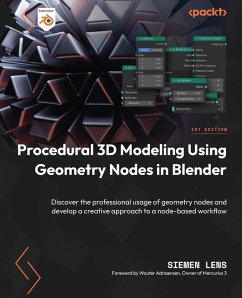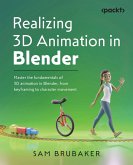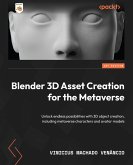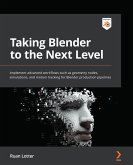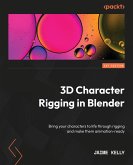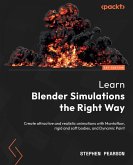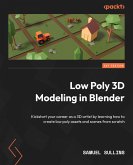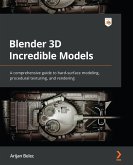Purchase of the print or Kindle book includes a free PDF eBook
Key Features
- Develop a creative mathematical thinking of the modeling workflow
- Understand how Blender and geometry nodes store and manage the data that you are handling
- Learn different scatter methods and how to use them
Book Description
For anyone working in the computer graphics industry, understanding how to use Blender's new geometry nodes tools to manipulate and generate 3D geometry in a node-based workflow is an essential skill. In this book, you'll learn how to use the basic and intermediate features of geometry nodes that are a crucial part of your Blender roadmap.You'll start by understanding the different node inputs and outputs followed by the basic nodes you'll need throughout your geometry nodes projects. The book will show you how the node system works and enable you to put your newfound knowledge to use through exercises that involve modifying curves, meshes, and more. You'll work on a range of interesting projects such as creating a procedural plant, where you'll use nodes to generate the intricate details and variations of a plant in a procedural manner, and a spiderweb generator to refine your skills of cleaning up a node tree. Finally, you'll build a procedural LED panel using geometry nodes to generate the look of an LED panel.
By the end of this book, you'll be able to overcome any geometry node issue confidently and make complicated geometry node trees exactly how you need them.
What you will learn
- Discover the different node inputs and outputs that geometry nodes have to offer
- Get the hang of the flow of the geometry node system
- Understand the common nodes you'll be using along with their functions in the geometry node editor
- Modify basic mesh primitives using the node system inside Blender
- Scatter and modify objects aligned onto a curve
- Become familiar with the more advanced nodes in the geometry nodes system
- Link geometry and material nodes editors using named attributes
- Implement your new-found knowledge of nodes in real-world projects
Who this book is for
If you are a CG Artist or follow modeling careers like that of an environment artist or even a CG generalist in the cinematography industry and you are looking to get into learning a node-based modeling workflow using Geometry Nodes in Blender, this is the perfect book for you. You will need a basic knowledge of the fundamentals of Blender, for example, knowing the specific workflow of material nodes and being able to apply this knowledge to your projects. To get the most out of this book, you should have a basic understanding of Blender's shortcut system and some modeling experience.Dieser Download kann aus rechtlichen Gründen nur mit Rechnungsadresse in A, B, BG, CY, CZ, D, DK, EW, E, FIN, F, GR, H, IRL, I, LT, L, LR, M, NL, PL, P, R, S, SLO, SK ausgeliefert werden.
Hinweis: Dieser Artikel kann nur an eine deutsche Lieferadresse ausgeliefert werden.

